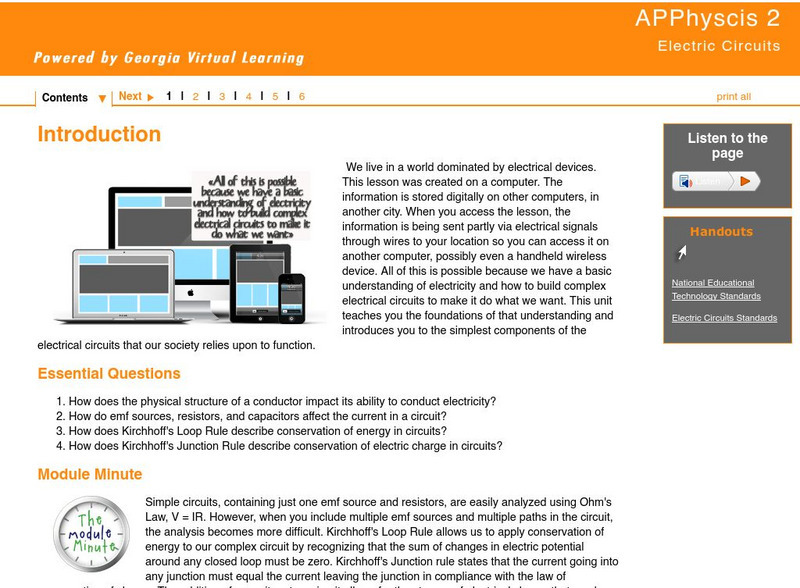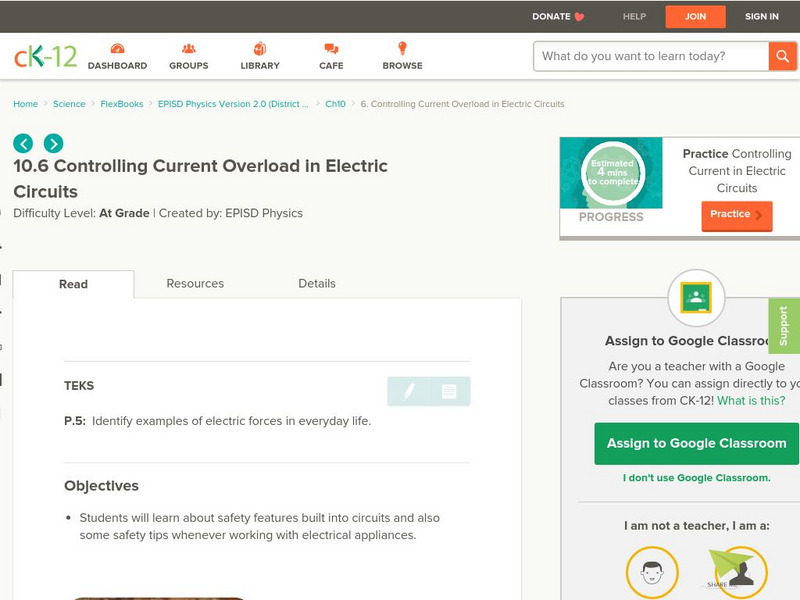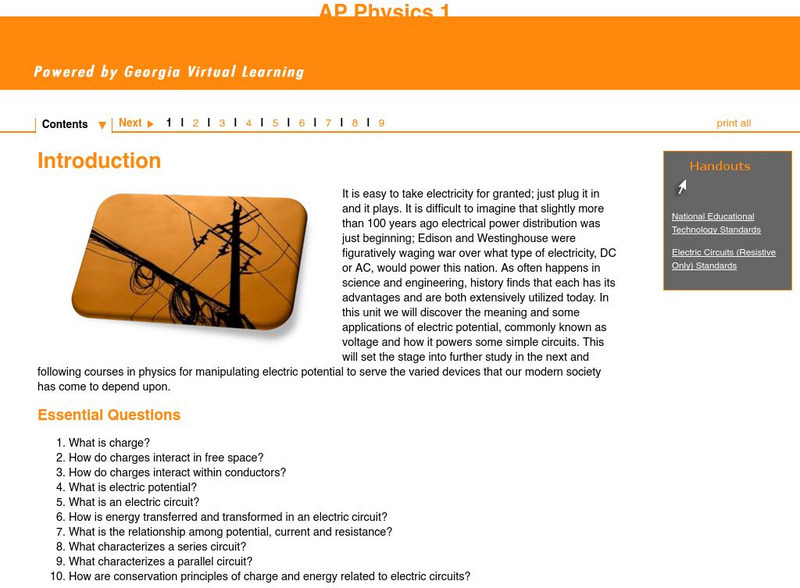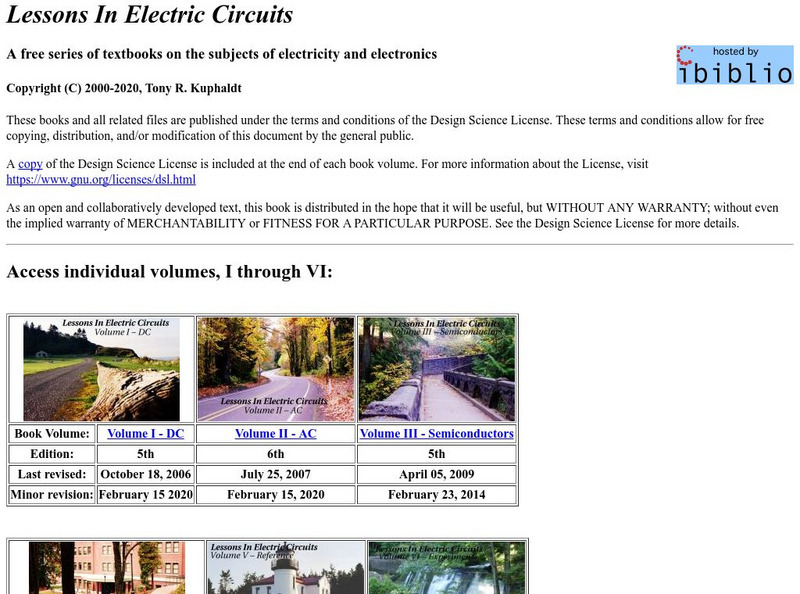Curated OER
The Invention of the Telegraph
Students study the history of telegraph invention. In this technology activity, students build their own Morse Telegraph System. They discuss how this invention benefits the society.
Curated OER
Sound and Hearing
Students form an understanding that there are many different types of sound. The core concepts are presented in the most basic form for elementary school. Also students investigate how sound travels.
NASA
Photons in the Radiative Zone: Which Way Is Out? An A-Maz-ing Model
Can you move like a photon? Young scholars use a maze to reproduce the straight line motion of a photon. The second in a six-part series of lessons on the sun has learners measure angle of incidence and refraction to determine the path...
Curated OER
Electromagnetism
Students explore the generation of magnetic fields from currents in wires and measure the magnetic field directions. They measure magnetic fields in their own environment. They also examine how moving magnetic fields can create currents.
Curated OER
Peak, Average, and RMS Measurements
In this voltage worksheet, students answer ten questions about RMS amplitude, DC power sources, AC alternators and the measurements used for voltage in power lines.
Curated OER
A Salt and Battery
In this battery worksheet, high schoolers read about oxidation-reduction reactions and voltaic cells. They are given a diagram of an electrochemical cell and they answer four questions using the cell. They also identify the anode given...
Curated OER
Regents Exam Questions: Quadratics
In this quadratics worksheet, students identify the roots of a quadratic equation. They use FOIL and the quadratic formula to solve quadratic equations. This seven-page worksheet contains 32 problems. Answers are...
Curated OER
Making A Compass
This interesting science lesson is about the compass. Students make a compass out of a magnet, sewing needle, cork, and a glass dish. The lesson includes both a pre and post-test for the students to take, and some very good links to...
Curated OER
The Discovery of Ohm's Law
Students study Georg Ohm and how he changed mathematics with his law. In this experimental evidence and stastics lesson students complete an experiment on the characteristics of Ohm's law.
Curated OER
Current-Carrying Coils In Magnetic Fields
Students predict the direction of movement for the pointer of a home-made galvanometer for a given current direction and describe how the current-carrying coil exerts a force on the magnet.
CK-12 Foundation
Ck 12: Physical Science: Electric Circuits
[Free Registration/Login may be required to access all resource tools.] Explains what an electric circuit is, its different parts, and how to represent it using a circuit diagram.
CK-12 Foundation
Ck 12: Fourth Grade Science: Physical Science: Electric Circuits
[Free Registration/Login may be required to access all resource tools.] Describes the parts of an electric circuit and identifies electric safety features and how to use electricity safely.
Georgia Department of Education
Ga Virtual Learning: Ap Physics 2: Electric Circuits
This unit teaches students the foundations of electrical circuits and introduces them to their simplest components. Covers series and parallel circuits, Kirchhoff's Rules, Ohm's Law, RC circuits, resistivity, and capacitance.
American Association of Physics Teachers
Com Padre Digital Library: Open Source Physics: Chaotic Electric Circuit Explorer
Simulation investigating the characteristics of two electrical circuits that exhibit chaotic behavior, Chua's circuit and an autonomous relaxation oscillator (ARO), by adjusting the settings.
Physics Classroom
The Physics Classroom: Common Misconceptions Regarding Electric Circuits
In this tutorial, preconceived ideas regarding the nature of charge flow and the role of a battery in a circuit are addressed. In many instances, these preconceived notions about charge flow and batteries are incorrect ideas and are...
Physics Classroom
The Physics Classroom: What Is an Electric Circuit?
In this tutorial the concept of electric potential difference is discussed. Electric potential is the amount of electric potential energy per unit of charge that would be possessed by a charged object if placed within an electric field...
CK-12 Foundation
Ck 12: Controlling Current Overload in Electric Circuits
[Free Registration/Login may be required to access all resource tools.] Electrical circuits have safety features like fuses and circuit breakers to prevent an overload, which could cause a fire. This lesson explains how these work....
Georgia Department of Education
Ga Virtual Learning: Ap Physics 1: Electric Circuits
In this unit students discover the meaning and some applications of electric potential, commonly known as voltage, and how it powers some simple circuits.
ibiblio
Ibiblio: Lessons in Electric Circuits
Learn anything you ever wanted to know and more about electrical circuits here. Complete with in-depth explanations and detailed diagrams.
Physics Classroom
The Physics Classroom: Electric Circuits: Circuit Builder
Students manipulate this virtual electronic circuit board where they can add resistors, light bulbs, wires, and ammeters to build a circuit, explore Ohm's law, and compare and contrast series, parallel, and combination circuits. Three...
CK-12 Foundation
Ck 12: Energy Transfer in Electric Circuits
[Free Registration/Login may be required to access all resource tools.] Students learn about the economic importance of calculating energy consumption, and are introduced to the equations used for measuring the electricity in an electric...
Physics Classroom
The Physics Classroom: Journey of a Typical Electron
In the wires of electric circuits, an electron is the actual charge carrier. In this article, an electron's path through the external circuit is introduced.
Physics Classroom
The Physics Classroom: Current Electricity: Circuit Connections: Series Circuits
When two or more electrical devices in a circuit can be connected, it is considered a series connection or a parallel connection. When all the devices are connected using series connections, the circuit is referred to as a series...
Physics Classroom
The Physics Classroom: Electric Circuits: Circuit Connections: Parallel Circuits
When two or more electrical devices in a circuit are connected, it is known as a series connection or a parallel connection. When all the devices are connected using parallel connections, the circuit is referred to as a parallel circuit....

















